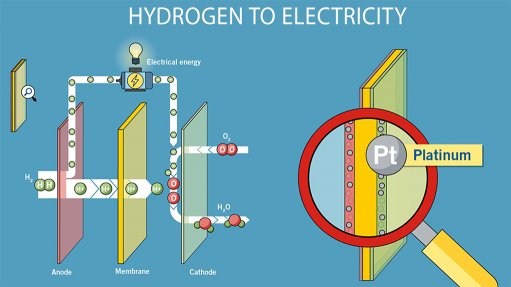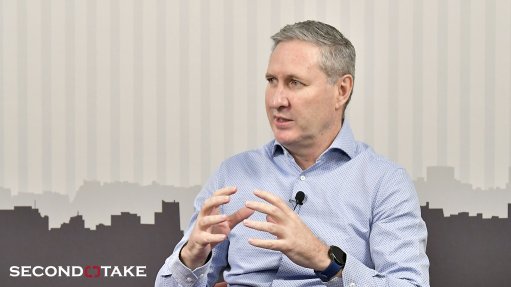Transferable skills and local investment: Unpacking the Green Hydrogen Ecosystem with CWP Global and YamnaCo. Ltd
This article has been supplied as a media statement and is not written by Creamer Media. It may be available only for a limited time on this website.
Have you heard? Green hydrogen, the brand-spanking new green molecule might just be the solution to the global energy crisis. As a green fuel alternative for the shipping, aviation, and transport sectors, green hydrogen may be a key component in the global mission to decarbonise energy intensive industries. It has made quite a splash in the media of late, and so AltGen thought it would add its voice to the mix. AltGen Recruitment has developed an outline of crucial skills needed to make green hydrogen projects in pipeline a reality.
What skills are needed for the successful implementation of green hydrogen projects? Do these skills already exist in the market, or will new skills have to be created?
In pursuit of answers, AltGen spoke to who they consider to be some of the movers and shakers making waves in the green hydrogen game.
Creating a Sustainable Green Hydrogen Ecosystem
First on the panel of experts is Margaret Mutschler, Vice President of Project Development Africa at CWP Global. An Electrical Engineer by education and Project Developer by career, Margaret is a move-maker and ground-shaker in the renewable energy space. Currently involved in some of the biggest green hydrogen projects on the African continent (Mauritania, Morocco, and Djubouti), CWP has developed invaluable market insights into green hydrogen.
AltGen also spoke with Amine Masnaoui, Business Development Manager at YamnaCo Ltd. With a background in Infrastructure Investment and a particular affinity for emerging markets, Amine, found himself unable to resist the temptation that the potential of green hydrogen posed. Yamna is focused on green hydrogen and derivative projects in Oman, Scandinavia, Morocco, and East Africa.
Green hydrogen projects are starting up across the globe. Notable projects identified by AltGen include;
- Aman (Hybrid generators) – Mauritania
- Nour (Green Hydrogen) – Mauritania
- Green Energy Oman (Hybrid generators) – Oman
- Green Steel with ArcelorMittal (Green Steel) – Mauritania
- NEOM Green Hydrogen (Green Hydrogen) – Saudi Arabia
- Holmaneset Project (Green ammonia) – Norway
- Oshivela (Green Steel) – Namibia
- HyRail Namibia (Hydrogen-diesel) – Namibia
Now that we have all be introduced; let’s talk about skills
With green hydrogen being as new and niche as it is, there has been a lot of talk about the ‘ideal candidate’, that perfect profile that demonstrates an idyllic meeting of two worlds that have famously been at each other’s throats for decades.
The oil & gas industry, and renewables.
As amply put by Amine;
“Green hydrogen sits between two worlds that have never had to talk to each other before. The world of renewable energy and the oil and gas industry. The ideal candidate that everyone is looking for is someone that basically doesn’t really exist, because its someone that can wear these two hats and is able to look at a project from end-to-end and understand how to size a PV or wind plant, and how an ammonia facility works.”
If the ideal candidate does not exist, where do we start?
Both Amine and Margaret suggest that best way to tackle the green hydrogen skills gap, is to adopt an organic, local hiring structure and to invest in your internal team.
“You as a company, need to make a decision and say I’m going to train people.”
At project-level, both CWP and Yamna take a bottom-up skills development approach that focuses on local value creation through localised supply chains and job creation. Margaret suggests that the bulk of the green hydrogen skills that will initially be required, exist at a semi-skilled to skilled level in the civil and structural industries. These skills in addition to the resources required to build and operate green hydrogen plants, can be sourced locally.
Feeding the Whole Ecosystem:
“Maximise your local content, not because the government wants you to, but because it makes sense.” - Margaret
Something that both CWP and Yamna agree on, is that companies need to have a micro and macro socio-economic understanding of the countries that they are operating in. Investing in local skills development programs is not only an effective method of risk mitigation, but it makes a project more meaningful, and often as a consequence of this, more sustainable.
Yamna’s vision entails the development and implementation of various educational programs in the form of training, university chairs, workshops, and factory visits for example. The company, although deeply invested in the socio-economic development of the emerging markets they are working in, also recognises the political role that local investment plays in the allocation of projects.
“Doing this not only serves our corporate interest in finding the right skillset – since we are creating talent by forging them exactly to our needs – but we see that it is becoming an obligation. We are seeing authorities awarding land and subsidies for projects with clearly defined KPIs and skills development programs, as they recognise that green hydrogen is not only a royalty-making economy but a sustainable industry on the rise. If we invest now, we can develop and attract local talent in the long run.”
Amine
CWP’s approach to skills development can also be considered a wholistic one. In addition to the skills linked to the direct operation of the project, CWP is focused on the “indirect skills that would be required in-country to provide the ecosystem that can support the implementation of the project without too much cannibalising in existing industry.” - Margaret
Establishing a clear link between strategic priorities and the demand for talent is key to attracting and retaining skills, but also to the longevity of projects. The countries that offer the ideal environment for green hydrogen projects, are also home to locals that have a vested interest in the success of their communities. On a project level, investing in local talent is also considerably more affordable than flying it in from Europe. This is only viable option then, however, is investment in the development of common infrastructure.
When we talk about common infrastructure, we are referring to several aspects of the project value chain, the most important being transport and storage. Encompassed in these two categories, amongst others, are roads, terminals, tanks, ports, desalination facilities, and pipelines.
Eating your elephant, one bite at a time…
Different stages of the project lifecycle will require different skills and naturally, this means that some skills development can take the form of on-the-job training – particularly in the early stages. Direct exposure to project sites as part of the initial installation or analysis teams for example, is one way that CWP has implemented this approach to skills development.
“We recognise that we deliberately provide people with skills which are transferable because we recognize that the industry won't be ready for us if we just look at ourselves, we need an ecosystem around it.”
Margaret
Where, then, is the skills gap that everyone keeps talking about??
CWP holds the opinion that the initial development skills gap lies in both the legal and financial sectors, with the legal skills demand being particularly difficult to meet. The sheer size of green hydrogen projects means that these teams will need finance and legal professionals with experience in tax, trading, maritime, renewable energy, big infrastructure, sustainability, and project finance.
This kind of experience in multidimensional, multilayered international legislation, transactions, and agreements will likely only be found across the pond in both Europe and America. Individuals will have to bring an impressive skillset to the table – learning, innovating, and evolving with the technology as it advances.
“While we seek for the emergence of five-legged sheep, we have adopted another strategy which is to look for people with strong structuring capabilities. In other words, instead of looking for sectorial expertise (which hardly exists since green H2 is nascent), we look for ‘functional’ expertise. People able to grasp complex projects, with a track record of making projects succeed.”
Amine
By adopting this approach. Yamna has built a team of highly capable individuals that when combined, create the perfect “Swiss army knife”, capable of solving any problem.
“Our team needs to be able to navigate between the complexity of commodity spot markets, long-term offtake, green taxonomy, safety constraints, equipment guarantees, local permitting, etc, not because they master every piece of it, but because they have already worked in challenging environments with lots of moving pieces. And of course, they’ll do that with the support from dedicated industry experts.”
Amine
H2 Green Skills for Hydrogen have suggested that the higher-level skills can be found in the following five categories;
1. Engineering professionals (no surprise here)
2. Physical and engineering science technicians, draughtsmen, and computer aided design drafter technicians
3. Electrotechnology engineers
4. Sales, marketing, and public professionals
5. Project managers
The need for science, technology, engineering, mathematics, and digital and data science skills is, and will always remain high across the energy sector and they are not yet in short supply. A skill that is already high in demand and likely to become more so, and consequently scarcer, are experts in health and safety.
“HSE practices fundamentally underpin each facet required for a project’s success. The engineering, legal, and financial skills all need to put HSE first. When it comes to developing, constructing and operating a green hydrogen plant, all the players along the value chain will be required to solve complexities around HSE due diligence and risks – it’s at the core of it all.”
Lindy Taylor, Business Development & Innovation Director at AltGen
Ultimately, everyone in the green hydrogen skills value chain will need to prioritise health and safety, ensuring that it is their first consideration when making any decision related to the project. Why the big fuss about health and safety you ask? Hydrogen is highly flammable and therefore a dangerous gas to work with. Health and Safety Executive (HSE) guidelines specific to hydrogen were created in 2009. The industry is going to need both legal and HSE professionals who intimately understand these guidelines and the ones that will undoubtedly be introduced in the near future. With this said, financial and investment professionals also need to take account of the financial risks and burdens a project may face.
What about personality?
From a soft skills perspective, the green hydrogen industry requires grassroots thinkers that have the capacity to learn at lightning speed and are highly result driven.
“The reality is nobody has done a hydrogen project before. Aptitude to learn is very, very important” and there will be “a lot of self-learning. We employ people that we can utilise, and they start to work and deliver as part of the team right from day zero.”
- Margaret
Although money will always be a factor, the renewable energy industry is looking for people that want to be part of a bigger, more meaningful move towards net-zero. This is particularly true in Africa; candidate motivations are rooted in re-investing their skills into the community that has raised them.
Final thoughts…
The systems that humanity is so intimately reliant on cannot work in isolation.
In order to tackle the skills gap in the green hydrogen economy, industry, institutions, and government, must adopt a wholistic, collaborative, and symbiotic strategy. It is not just the skills themselves that need to be developed, but also the communities that hold them. Educational, infrastructural, and legislative industries must all transition into entities that support the manufacturing and processing of this magical green molecule, creating a self-sustaining green hydrogen ecosystem.
Comments
Press Office
Announcements
What's On
Subscribe to improve your user experience...
Option 1 (equivalent of R125 a month):
Receive a weekly copy of Creamer Media's Engineering News & Mining Weekly magazine
(print copy for those in South Africa and e-magazine for those outside of South Africa)
Receive daily email newsletters
Access to full search results
Access archive of magazine back copies
Access to Projects in Progress
Access to ONE Research Report of your choice in PDF format
Option 2 (equivalent of R375 a month):
All benefits from Option 1
PLUS
Access to Creamer Media's Research Channel Africa for ALL Research Reports, in PDF format, on various industrial and mining sectors
including Electricity; Water; Energy Transition; Hydrogen; Roads, Rail and Ports; Coal; Gold; Platinum; Battery Metals; etc.
Already a subscriber?
Forgotten your password?
Receive weekly copy of Creamer Media's Engineering News & Mining Weekly magazine (print copy for those in South Africa and e-magazine for those outside of South Africa)
➕
Recieve daily email newsletters
➕
Access to full search results
➕
Access archive of magazine back copies
➕
Access to Projects in Progress
➕
Access to ONE Research Report of your choice in PDF format
RESEARCH CHANNEL AFRICA
R4500 (equivalent of R375 a month)
SUBSCRIBEAll benefits from Option 1
➕
Access to Creamer Media's Research Channel Africa for ALL Research Reports on various industrial and mining sectors, in PDF format, including on:
Electricity
➕
Water
➕
Energy Transition
➕
Hydrogen
➕
Roads, Rail and Ports
➕
Coal
➕
Gold
➕
Platinum
➕
Battery Metals
➕
etc.
Receive all benefits from Option 1 or Option 2 delivered to numerous people at your company
➕
Multiple User names and Passwords for simultaneous log-ins
➕
Intranet integration access to all in your organisation





















